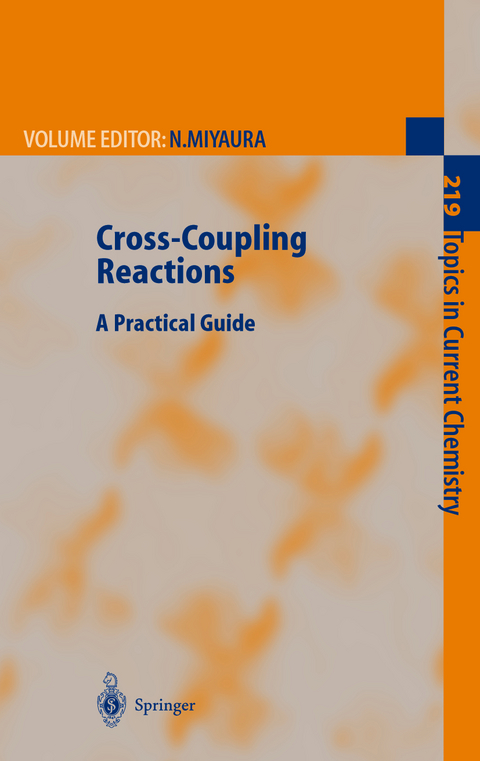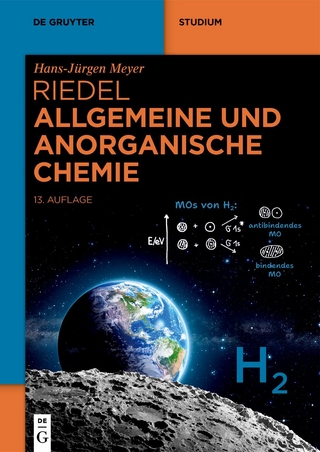
Cross-Coupling Reactions
A Practical Guide
Seiten
2002
|
2002
Springer Berlin (Verlag)
978-3-540-42175-7 (ISBN)
Springer Berlin (Verlag)
978-3-540-42175-7 (ISBN)
This series presents critical reviews of the present position and future trends in modern chemical research. Short and concise reports on chemistry, each written by the world renowned experts. Still valid and useful after 5 or 10 years.
In 1972, a very powerful catalytic cycle for carbon-carbon bond formation was 2 first discovered by the coupling reaction of Grignard reagents at the sp -carbon. Over the past 30 years, the protocol has been substantially improved and expanded to other coupling reactions of Li,B,N,O,Al,Si,P,S,Cu,Mn,Zn,In,Sn, and Hg compounds. These reactions provided an indispensable and simple methodology for preparative organic chemists. Due to the simplicity and rel- bility in the carbon-carbon, carbon-heteroatom, and carbon-metalloid bo- formations,as well as high efficiency of the catalytic process,the reactions have been widely employed by organic chemists in various fields. Application of the protocol ranges from various syntheses of complex natural products to the preparation of biologically relevant molecules including drugs, and of sup- molecules, and to functional materials. The reactions on solid surfaces allow robot synthesis and combinatorial synthesis. Now, many organic chemists do not hesitate to use transition metal complexes for the transformation of org- ic molecules. Indeed, innumerable organic syntheses have been realized by the catalyzed reactions of transition metal complexes that are not achievable by t- ditional synthetic methods. Among these, the metal-catalyzed cross-coupling reactions have undoubtedly contributed greatly to the development of such a new area of "metal-catalyzed organic syntheses". An excellent monograph for the cross-coupling reactions and other met- catalyzed C-C bond-forming reactions recently appeared in Metal-catalyzed Cross-coupling Reactions (Wiley-VCH,1998).
In 1972, a very powerful catalytic cycle for carbon-carbon bond formation was 2 first discovered by the coupling reaction of Grignard reagents at the sp -carbon. Over the past 30 years, the protocol has been substantially improved and expanded to other coupling reactions of Li,B,N,O,Al,Si,P,S,Cu,Mn,Zn,In,Sn, and Hg compounds. These reactions provided an indispensable and simple methodology for preparative organic chemists. Due to the simplicity and rel- bility in the carbon-carbon, carbon-heteroatom, and carbon-metalloid bo- formations,as well as high efficiency of the catalytic process,the reactions have been widely employed by organic chemists in various fields. Application of the protocol ranges from various syntheses of complex natural products to the preparation of biologically relevant molecules including drugs, and of sup- molecules, and to functional materials. The reactions on solid surfaces allow robot synthesis and combinatorial synthesis. Now, many organic chemists do not hesitate to use transition metal complexes for the transformation of org- ic molecules. Indeed, innumerable organic syntheses have been realized by the catalyzed reactions of transition metal complexes that are not achievable by t- ditional synthetic methods. Among these, the metal-catalyzed cross-coupling reactions have undoubtedly contributed greatly to the development of such a new area of "metal-catalyzed organic syntheses". An excellent monograph for the cross-coupling reactions and other met- catalyzed C-C bond-forming reactions recently appeared in Metal-catalyzed Cross-coupling Reactions (Wiley-VCH,1998).
From the contents:
- K. Tamao, N. Miyaura: Introduction to Cross-Coupling Reactions
- N. Miyaura: Organoboron Compounds in Cross-Coupling Reactions
- T. Hiyama, E. Shirakawa: Organosilicon Compounds in Cross-Coupling Reactions
- K. Fugami, M. Kosugi: Organotin Compounds in Cross-Coupling Reactions
- A.R. Muci, S.L. Buchwald: Practical Palladium Catalysts for C-N and C-O Bond Formation
- M. Miura, M. Nomura: Direct Arylation via Cleavage of Activated and Unactivated C-H Bonds
It is also suitable for teaching advanced courses in organic and organometallic chemistry. Clearly, it is one of the best books in this important field of synthetic organic chemistry.
| Erscheint lt. Verlag | 11.1.2002 |
|---|---|
| Reihe/Serie | Topics in Current Chemistry |
| Co-Autor | S.L. Buchwald, K. Fugami, T. Hiyama, M. Kosugi, M. Miura, N. Miyaura, A.R. Muci, M. Nomura, E. Shirakawa, K. Tamao |
| Zusatzinfo | X, 248 p. |
| Verlagsort | Berlin |
| Sprache | englisch |
| Maße | 155 x 235 mm |
| Gewicht | 527 g |
| Themenwelt | Naturwissenschaften ► Chemie ► Anorganische Chemie |
| Naturwissenschaften ► Chemie ► Organische Chemie | |
| Naturwissenschaften ► Chemie ► Physikalische Chemie | |
| Schlagworte | Chemistry • coupling reaction • Material Science • Materials Science • Materialwissenschaft • Metallorganische Chemie • Organometallic Chemistry • Physical Chemistry • Physikalische Chemie • Reaktionen (chem., physikal.) |
| ISBN-10 | 3-540-42175-0 / 3540421750 |
| ISBN-13 | 978-3-540-42175-7 / 9783540421757 |
| Zustand | Neuware |
| Haben Sie eine Frage zum Produkt? |
Mehr entdecken
aus dem Bereich
aus dem Bereich


